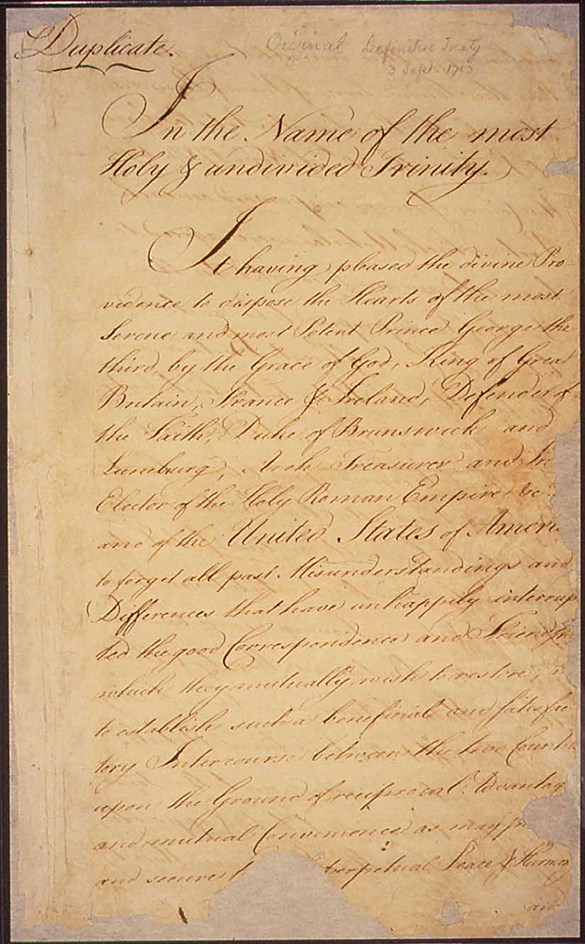Paris, Treaties of, were various international agreements signed in Paris. Throughout history, the French capital has been the site of numerous treaties that have shaped world events. This article describes some of the most noteworthy treaties of Paris.
The treaty of 1229
followed a religious and political conflict in the historic region of Languedoc in southern France. The treaty ended resistance to a crusade (1209-1229) against the Albigenses, a group regarded as heretics by the Roman Catholic Church. Raymond VII of Toulouse, whose family had, at times, protected the Albigenses, signed the treaty. It brought Languedoc firmly under the control of the kingdom of France. See Albigenses.
The treaty of 1763
ended the Seven Years’ War (1756-1763). Most notably, the treaty resolved colonial disputes and awarded vast territories to Great Britain (now also called the United Kingdom). France had to give Britain its territory in what is now Canada and all its lands east of the Mississippi River. The treaty did not affect New Orleans, because France had given the city to Spain in 1762. Spain gave Florida to Britain. In return, Spain regained control of land Britain had taken in Cuba and in the Philippines. France kept several Caribbean islands. The treaty began a period of British dominance outside Europe that lasted into the 1900’s. Austria, Prussia, and other nations involved in the war signed separate peace treaties. See Seven Years’ War.
The treaty of 1783
ended the American Revolution (1775-1783). The treaty recognized the independence of the United States and established the new nation’s borders. United States territory at that time extended west to the Mississippi River, north to Canada, east to the Atlantic Ocean, and south to about Florida. Britain gave Florida back to Spain. The treaty also granted the Americans fishing rights off Newfoundland and Nova Scotia. See American Revolution (The end of the war). 
The treaties of 1814 and 1815
ended the Napoleonic Wars (1793-1815). France—led by Napoleon Bonaparte—had fought the wars against several European nations, including Austria, Prussia, Russia, and the United Kingdom. Following a series of defeats and the invasion of France, Napoleon stepped down as emperor in April 1814 and was sent into exile. The treaty of 1814 briefly stopped the fighting and required France to return most of the territory it had won since Nov. 1, 1792. Napoleon returned to power in 1815, and fighting resumed until his defeat at Waterloo, in Belgium. Napoleon was forced into exile again. The treaty of 1815 returned France, with a few small exceptions, to its smaller borders of 1790 and forced France to make reparations (payments for war damages). See Napoleonic Wars.
The treaty of 1856
ended the Crimean War (1853-1856). In the Crimean War, the forces of France, the Ottoman Empire, the United Kingdom, and Sardinia defeated Russia. The treaty forced Russia to give up territory it had taken from the Ottoman Empire. It also forbade warships on and fortifications around the Black Sea. In addition, the agreement demilitarized the Åland Islands off Finland’s coast in the Baltic Sea. See Crimean War.
The treaty of 1898
ended the Spanish-American War. Spain gave up its claim to Cuba and handed over Guam, Puerto Rico, and the Philippines to the United States. The treaty virtually ended Spain’s colonial empire. The Philippines became independent from the United States in 1946. See Spanish-American War.
The treaties of 1919
resulted from the Paris Peace Conference and officially ended World War I (1914-1918). The treaties are collectively known as the Peace of Paris. The treaties stripped the defeated Central Powers of territory and arms and also required them to pay reparations to the Allies. The Paris treaties included the Treaty of Versailles, which dealt with Germany, and the Treaty of Saint-Germain, which dealt with Austria. Other treaties dealt with Bulgaria, Hungary, and the Ottoman Empire. See Versailles, Treaty of; World War I (The peace settlement).
The Paris treaties of 1947
were among many treaties that followed the end of World War II (1939-1945). They established peace between the victorious Allied nations and Bulgaria, Finland, Hungary, Italy, and Romania. The treaties included terms for reparations, measures for the protection of minority groups, and some territorial adjustments. The defeated nations were invited to apply for membership in the United Nations. Germany and Japan signed separate peace treaties. See World War II (Establishing the peace).
The treaties of 1973,
also known as the Paris Peace Accords, ended U.S. military involvement in the Vietnam War (1957-1975). The treaties called for the end of all hostilities, the withdrawal of U.S. and other foreign ground troops, and the return of prisoners of war. The accords permitted North Vietnam and the Viet Cong to leave their troops in the south and called for elections that would let the South Vietnamese decide their political future. After U.S. troops withdrew, however, North Vietnam ignored the treaties and resumed its invasion of South Vietnam. The South Vietnamese surrendered in 1975. See Vietnam War (Vietnamization).
